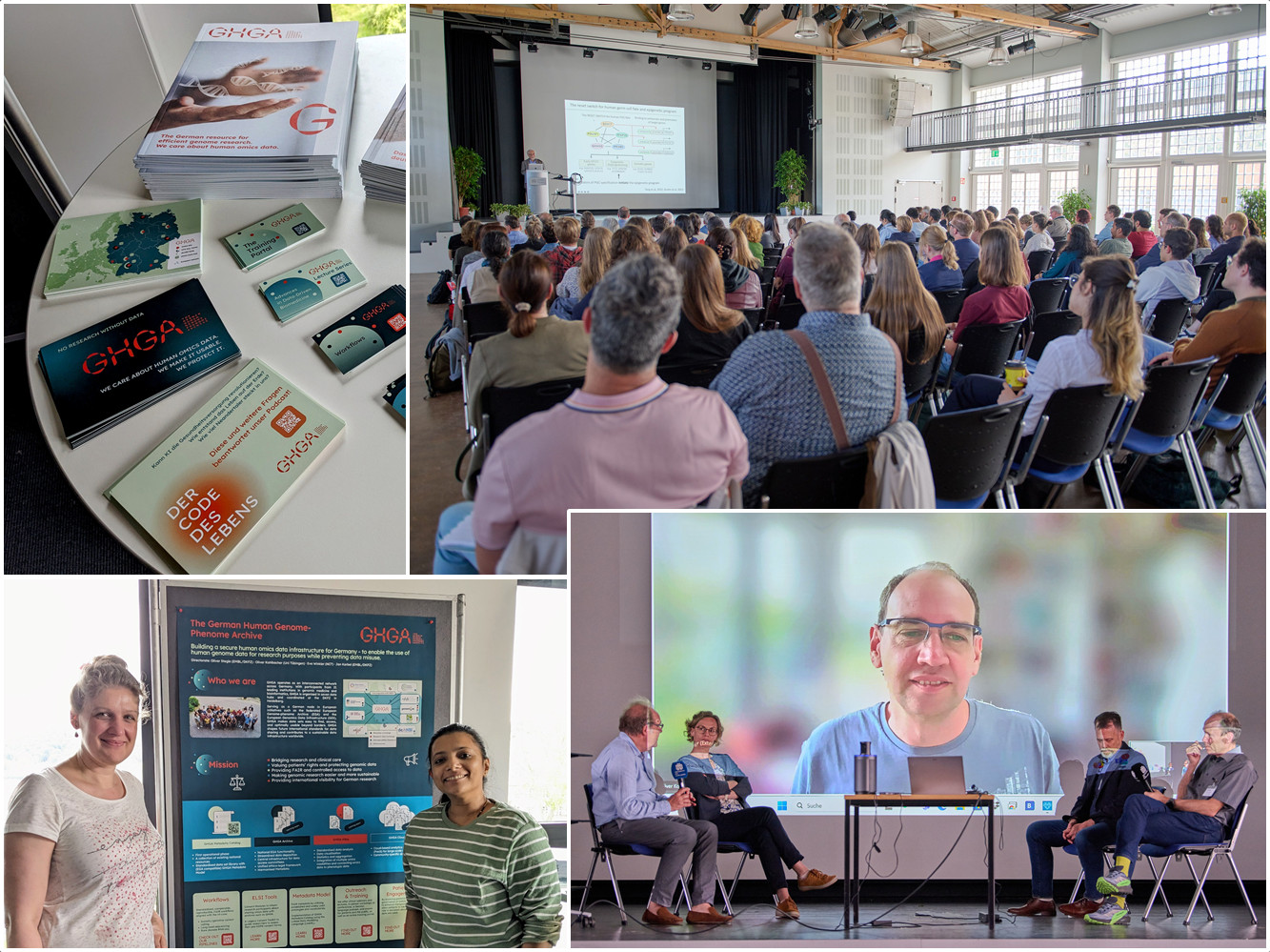Building Community Ties: GHGA at the Functional Epigenomics Conference
- 12 Jun 2024
- Nina Gasparoni
GHGA recently participated in the 'Functional Epigenomics' conference, organised by GHGA Co-Spokesperson Jörn Walter on May 27-28 at Saarland University in Saarbrücken, Germany. This was a great opportunity to engage with the epigenomics community.
The international conference provided a unique platform for exchange, featuring over 20 distinguished national and international speakers who explored the topic of functional epigenomics from various perspectives. Presentations covered a wide range of subjects, including epigenetic mechanisms, computational tools, functional interpretation, and the role of epigenetics in disease and ageing. The programme also included two poster sessions and a panel discussion, fostering a lively exchange of knowledge and collaboration.
GHGA had a significant presence at the conference, with several GHGA members invited as speakers, a dedicated booth and a poster presentation. GHGA team members Anandhi Iyappan and Nina Gasparoni engaged with attendees, providing detailed insights into GHGA’s mission and services. Additionally, GHGA board member Oliver Kohlbacher (Tübingen University) introduced GHGA to the audience through a virtual presentation, outlining the project's goals and roadmap, and participated in the panel discussion.
The main theme of the panel discussion was on 'Advancing Epigenomic Data Analysis: Integration, Archiving, Sharing.' Moderated by Jörn Walter, the panel featured experts such as Martin Hirst (UBC Vancouver), Joachim Schultze (DZNE, University of Bonn), Maria Colome-Tatche (LMU Munich), and Oliver Kohlbacher. The discussion revolved around the importance of initiatives like GHGA and the need for comprehensive metadata and standardised models to enhance data searchability and analysis. The panel also highlighted the importance of infrastructures and systems ensuring data archiving, sharing, and interoperability, and stressed the need to recognize and credit those who contribute significantly to data stewardship. The approximately 150 participants showed keen interest in this topic, which was reflected in dynamic and engaging discussions.
GHGA's involvement in the conference demonstrates its commitment to advancing epigenomic research and fostering strong community ties. We look forward to continuing these conversations at future epigenomics conferences.






